The following fieldnotes and photographs have been prepared by a research assistant on the Four Stories project. They outline some of the challenges faced by Wayuu communities today.
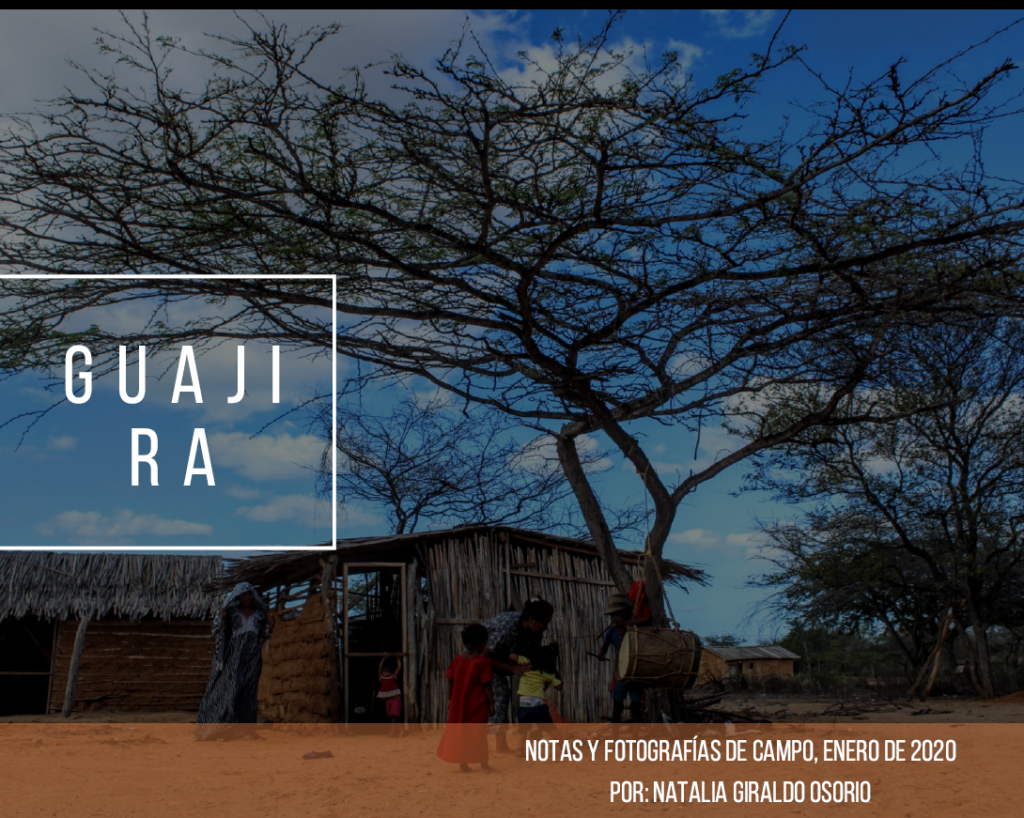
La Guajira, Colombia
Notes and Photographs from the Field, January 2020
Prepared by Natalia Giraldo Osario
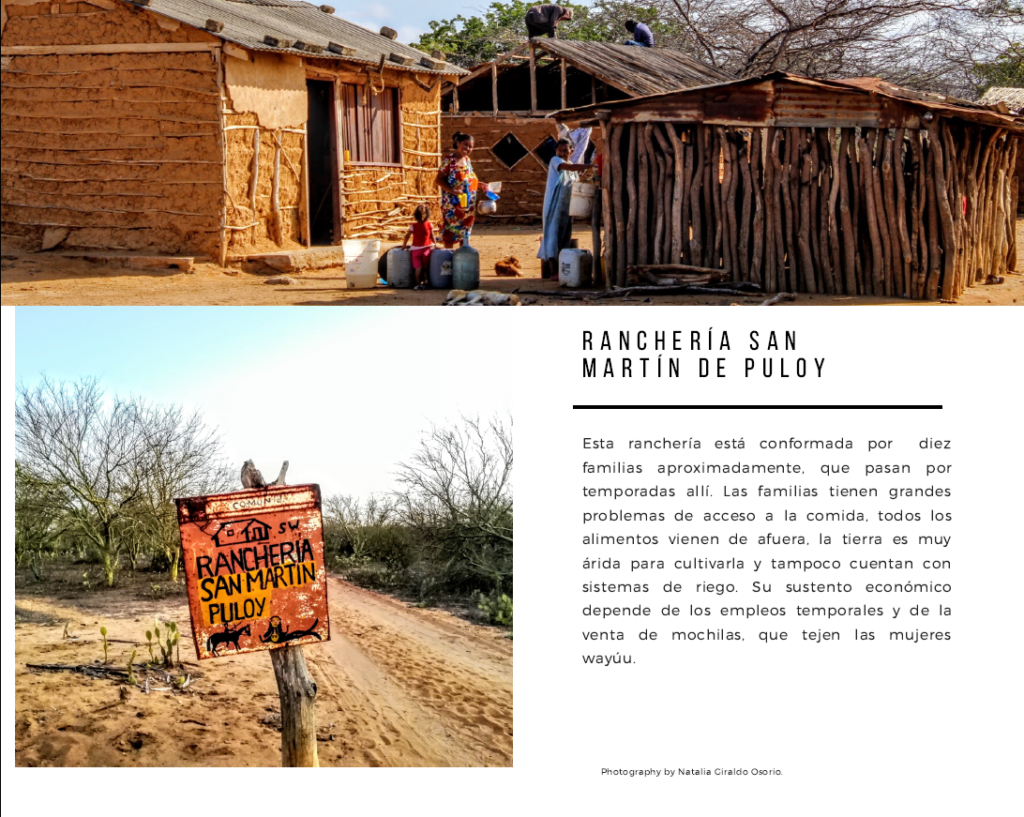
Rancheria (Settlement) St. Martin du Puloy
This community is made up of approximately ten families of Wayuu Indigenous people, who go through the seasons there. Families have major problems with access to food. All the food comes from outside since the land is very dry to cultivate and they do not have irrigation systems. Economic livelihoods depend on temporary jobs and selling handwoven bags (mochillas) made by the Wayuu women.

Everyday Life
At about 5:00 a.m. you start to smell the wood fire that announces the beginning of the day. Women gather in the kitchen to prepare food, and they collect water and care for the children. The men perform animal care and look after the land and housing arrangements.
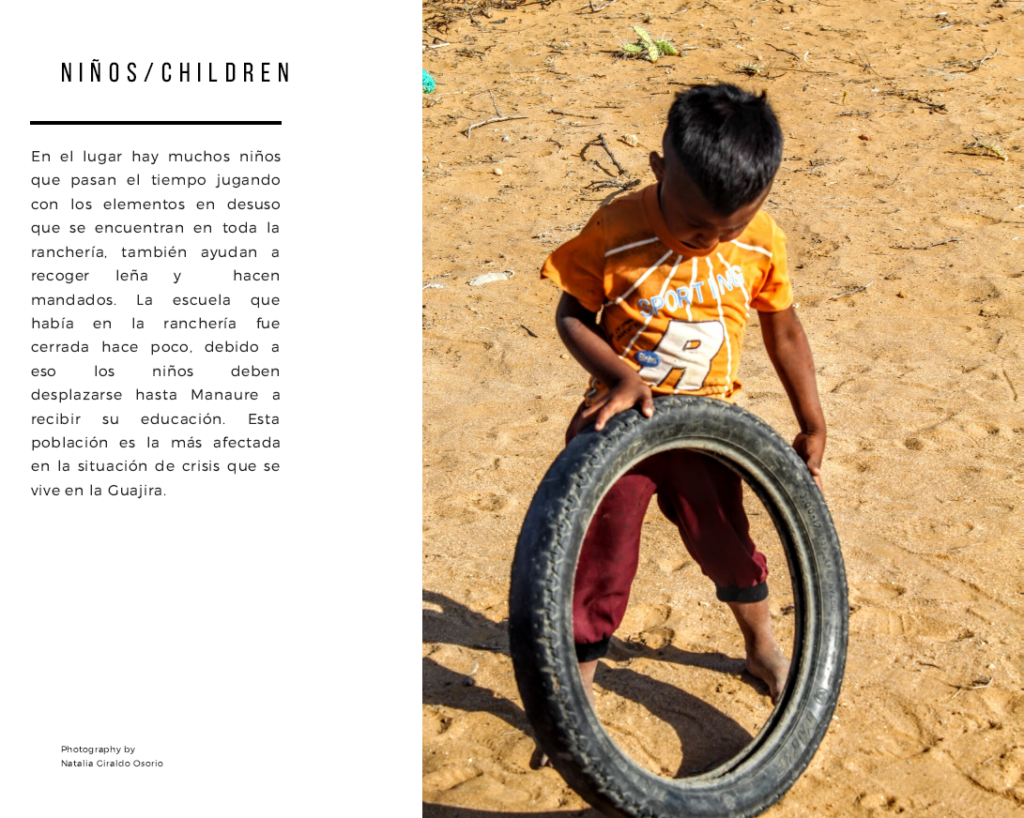
Children
There are many children in the community, who spend their time playing with discarded items found throughout the ranch. They also help to collect firewood and do chores. The school that was at the ranch was recently closed, meaning children must now travel to Manaure to receive their education. Children are the people most affected in the crisis situation occurring in La Guajira.

Women
Women in the community have created mutual support networks, and help to provide each other with items including food, water and other essentials. In addition, some are specialists in traditional medicine. Women are in charge of caring for the nuclear family.
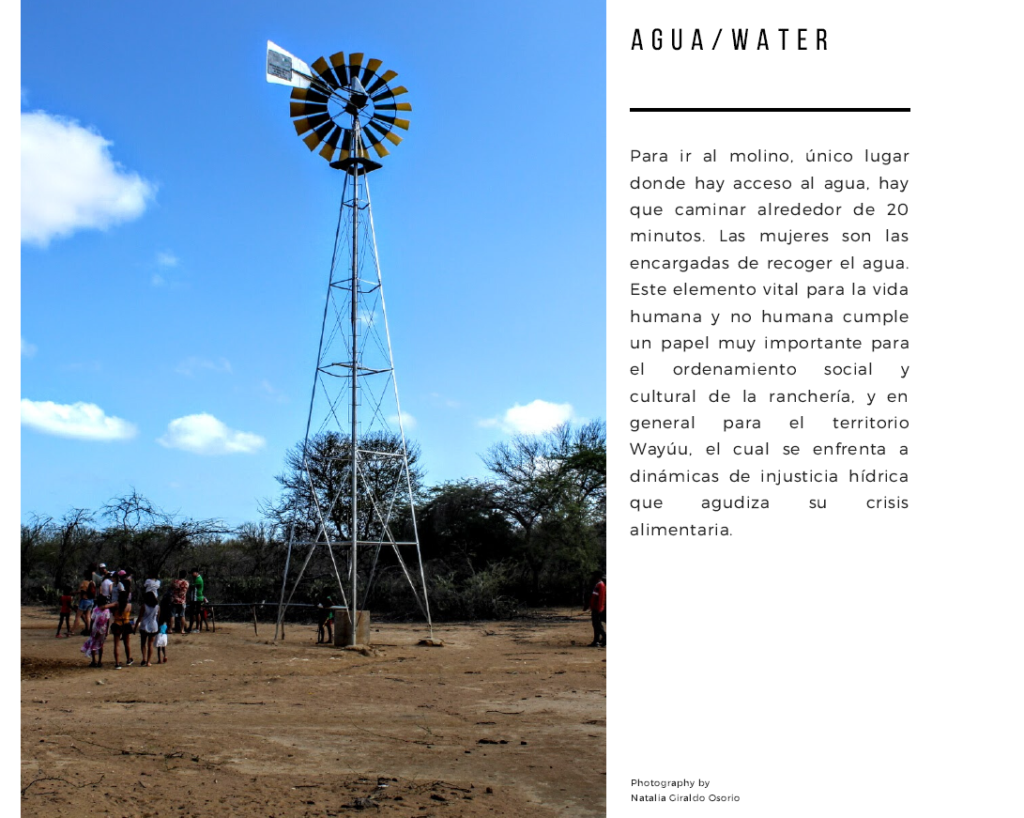
Water
To get to the mill, the only place where there is access to water, involves a walk of about 20 minutes. Women are in charge of collecting the water. This vital element for life, both human and other-than-human, plays a very important role in the social order and cultural life of the settlement. The Wayuu territory is facing challenges of water injustice, which exacerbates their food crisis.
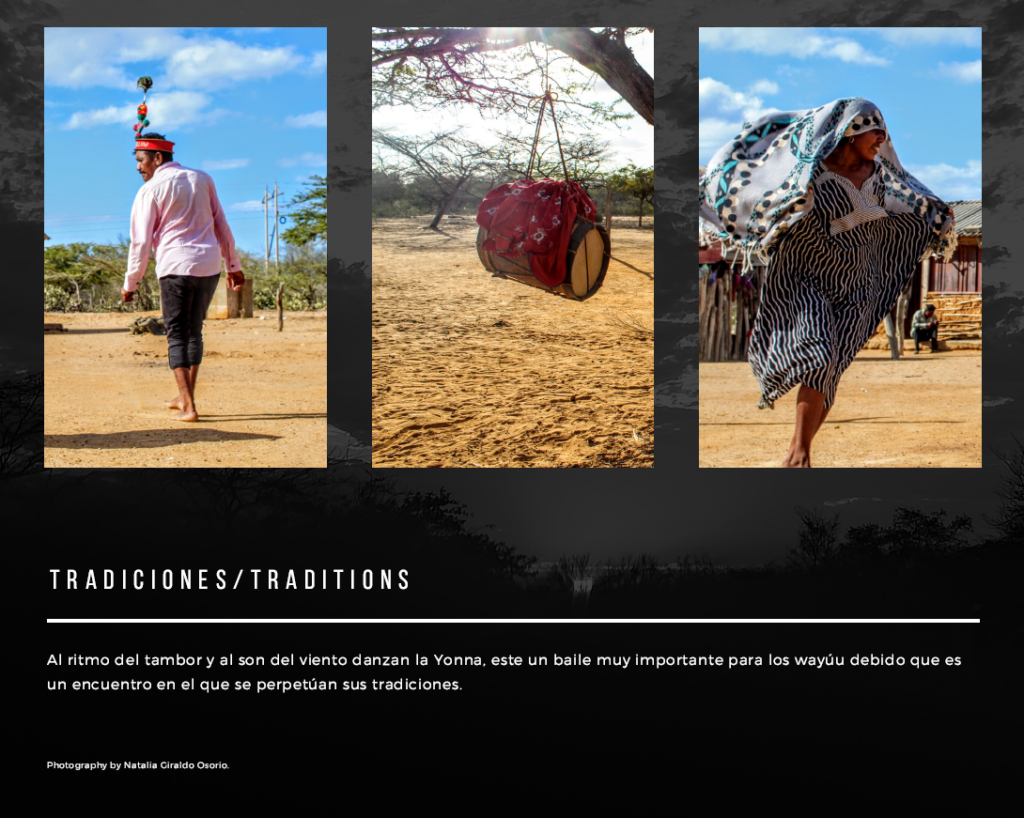
Traditions
To the rhythm of the drum and the sound of the wind, the Wayuu people dance the Yonna. This is a very important dance for the Wayuu because it is an opportunity to perpetuate their cultural traditions.

